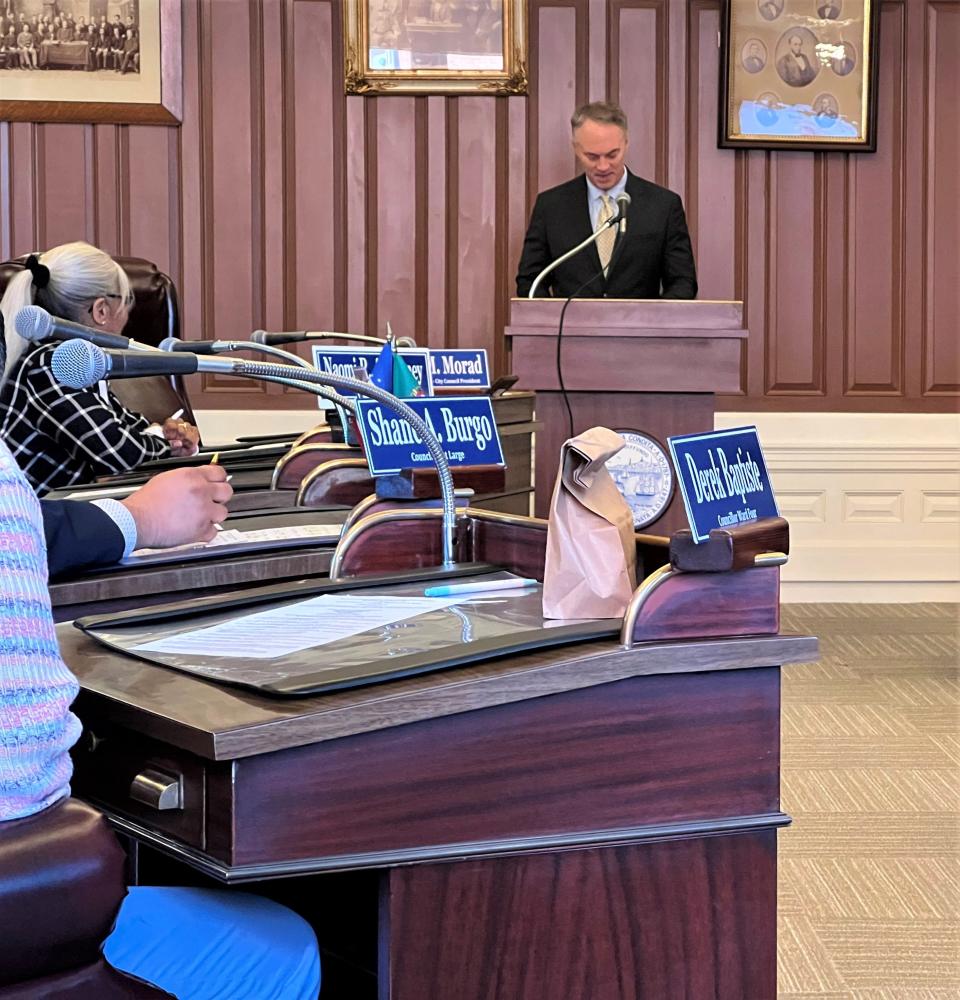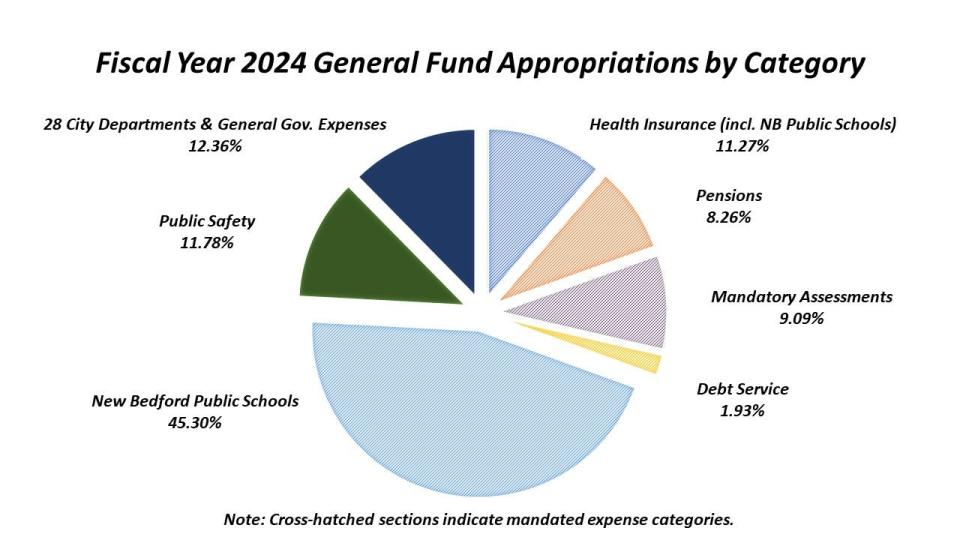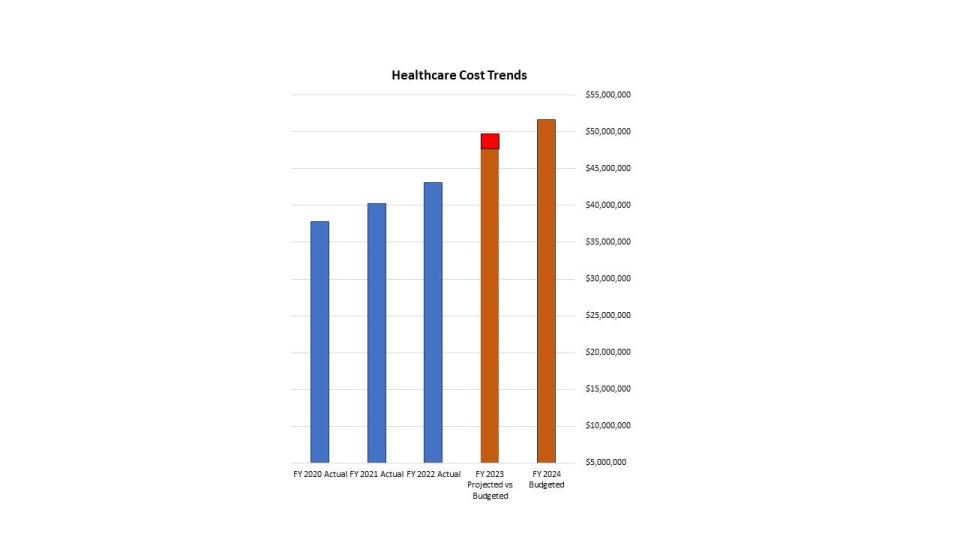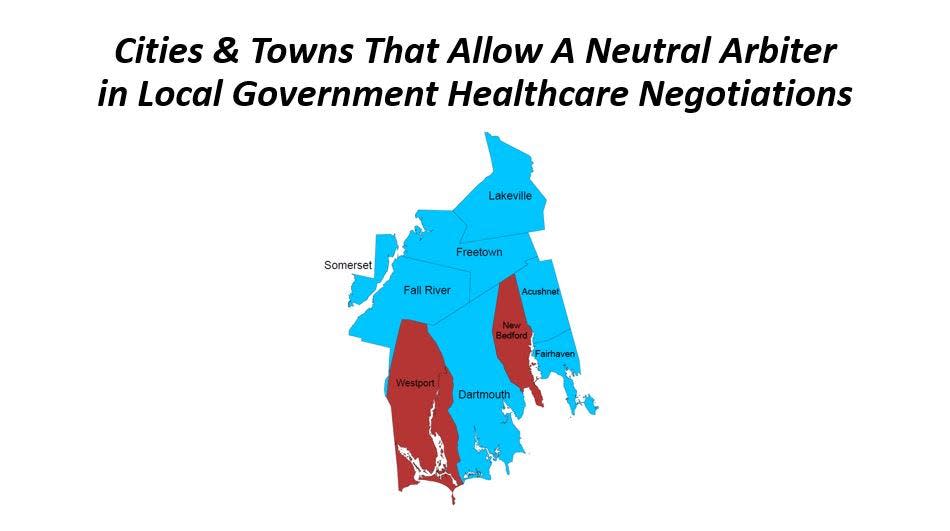Mayor Jon Mitchell presents over $500 million budget, urges health, pension cost reform
NEW BEDFORD - Mayor Jon Mitchell presented a city budget to the council Wednesday that topped half a billion dollars.
The total: $513,169,319.
And by far the largest portion of that is the general fund, which comes in at $458,910,392.
It's the general fund that includes schools, public safety, and city government.
It also includes health insurance, pensions, mandatory assessments and debt service.
Mitchell was optimistic about the city's financial future while cautioning that new budget tactics are needed.
He said it's time to stop "ignoring the elephant in the room" that is rising healthcare and pension costs.
"Over many years the city has pursued multiple rounds of budgetary belt-tightening," he said.
It's to the point now that there's a risk of not meeting personnel funding needs.

He said there were 1,136 full-time municipal (non-school department) employees when he took office in 2012.
That number fell to 1,029 in 2022, or about 10% fewer full-time employees. He added, "In 2023, the figure likely fell further still.”

That's in part due to greater efficiency but the city also risks an impact to services with further belt-tightening, he said.
The "overwhelming share of the operating budget remains comprised of fast-growing, legally-mandated spending -while state aid and revenue growth fail to keep up."

City officials must consider reform in healthcare and pension spending.
He said fixed costs and mandated assessments account for $110 million of General Fund expenditures, while Net School Spending requirements account for another $238 million. That's $348 million in a $458 million General Fund spending plan.
And that means over 75% of the spending in the budget cannot be reduced, leaving less than 25% shared among more than two dozen city departments, including police and fire.

He is again requesting the City Council adopt a state law that would establish a neutral arbiter toresolve impasses in health care negotiations and help control costs.
He said the city and unions would otherwise negotiate as they have in the past. Most surrounding communities have adopted it, he said, without any dire consequences.
The council declined to adopt it last year.
Mitchell said, “New Bedford taxpayers deserve relief from the outsized budget pressure caused by the current health insurance program, every bit as much as their neighbors in other communities.”
The tab in this year's budget to cover healthcare costs is $51.7 million, a full 10% increase over last year’s budget, he said.
He added that health insurance costs increased nearly $1 million per year from 2012 to 2023.
Mitchell said there's good reason to believe it may increase faster in future years.
Pension funds are another major budget item that add to the burden of taxpayers, he said.
The Retirement Board and City Council have a measure of control that could be exercised to reduce the impact of rising pension costs, Mitchell said.
The city's contribution will rise 6% to $37.9 million in fiscal year 2024, and it's projected to grow 9% the following year.
Mitchell said, "The notion that we can successfully restrain overall spending by trimming elsewhere in the budget, but doing nothing on health care and pensions is simply ignoring the elephant in the room."
City councilors will now review the budget in committee hearings and can make cuts before voting on its adoption. The new fiscal year starts July 1.
This article originally appeared on Standard-Times: Mayor Jon Mitchell's proposed budget tops half-a-billion dollars

